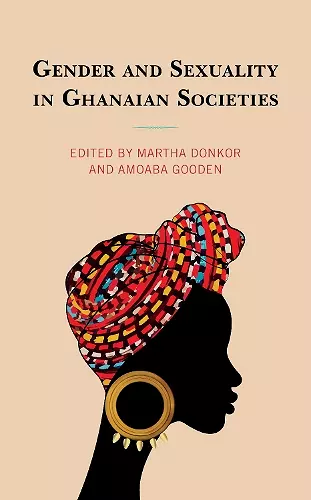Gender and Sexuality in Ghanaian Societies
Martha Donkor editor Amoaba Gooden editor
Format:Paperback
Publisher:Bloomsbury Publishing PLC
Published:25th Mar '24
Currently unavailable, and unfortunately no date known when it will be back

Gender and Sexuality in Ghanaian Societies explores cultural dynamics embedded in the interstices of agency, vulnerability, and power within patriarchal structures that seek to regulate the sexual lives of women in Ghana. Emphasizing the centrality of gender as a motive force for sexual expression, the book stresses that contemporary Ghanaian women's sexual expressions are caught at the intersection of traditional gender expectations of heteronormativity and women’s perceptions of how heteronormativity should operate in their lives. The book's emphasis on women's agency is significant because it highlights a flaw in earlier, Western accounts of African women's lives under Africa's special brand of patriarchy that held women in total subjection to men. Gender and Sexuality debunks that trope and presents Ghanaian women's dynamism, resilience, and vulnerabilities embedded in the diverse cultures in which they live.
The calls for rethinking and rewriting African sexualities is louder than ever. Framing and writing about African sexuality, for the most part of academic discourses, have been from Eurocentric, patriarchal viewpoints. It is now widely accepted that Africa is a region of multiple heritages (diverse indigenous, western and Islamic; see Mazrui 1987), which intersect to shape the beliefs and lives of individuals and communities. Built on these, discussions and researching the practice of sexuality in Ghana and other parts of Africa are often shrouded in secrecy, fear, religious myths, patriarchal heteronormativity and confusion. Gender and Sexuality in Ghanaian Societies, in the Gender and Sexuality in Africa and the Diaspora series, offers a genuine contribution to discourses on African sexuality from African-centred scholars and further charts the path of engaging the field in a decolonising manner and foregrounding the agency and distinctiveness of African sexuality. The chapters emphasise the existence, pathways, and use of agency in relation to sexuality, divorce, and mothering. What pieces all parts of the book together is the diverse appreciation and narration on women’s agency, even in circumstances where exercise of that agency is seen as an aberration to social and cultural norms and practices. By examining issues of historical and contemporary social attitudes and expectations toward sex; women’s agency through cleavage and breast exposure; role of morality, sexuality and mistrust, and health beliefs and practices in decisions to engage in sex; socio-political narration of imperial and colonial impacts on normative cultural roles of mothers and queens; and, society’s regard and support for divorced women and how the latter rise above the familiar shackles of economic hardships to financial independence, the book invites researchers and readers to re-question the dominance of gender binary based on biological sex that characterises literature and commentary of African sexuality and women agency. Through this re-questioning we are invited to consider the immense diversity that exists in African cultures. Grounded in rich sociological and anthropological standpoints, the editorials and contributions in this book provides pathways of understanding African sexuality. -- Dorothy Takyiakwaa, University of Cape Coast - Ghana
ISBN: 9781793628466
Dimensions: 230mm x 153mm x 14mm
Weight: 286g
194 pages